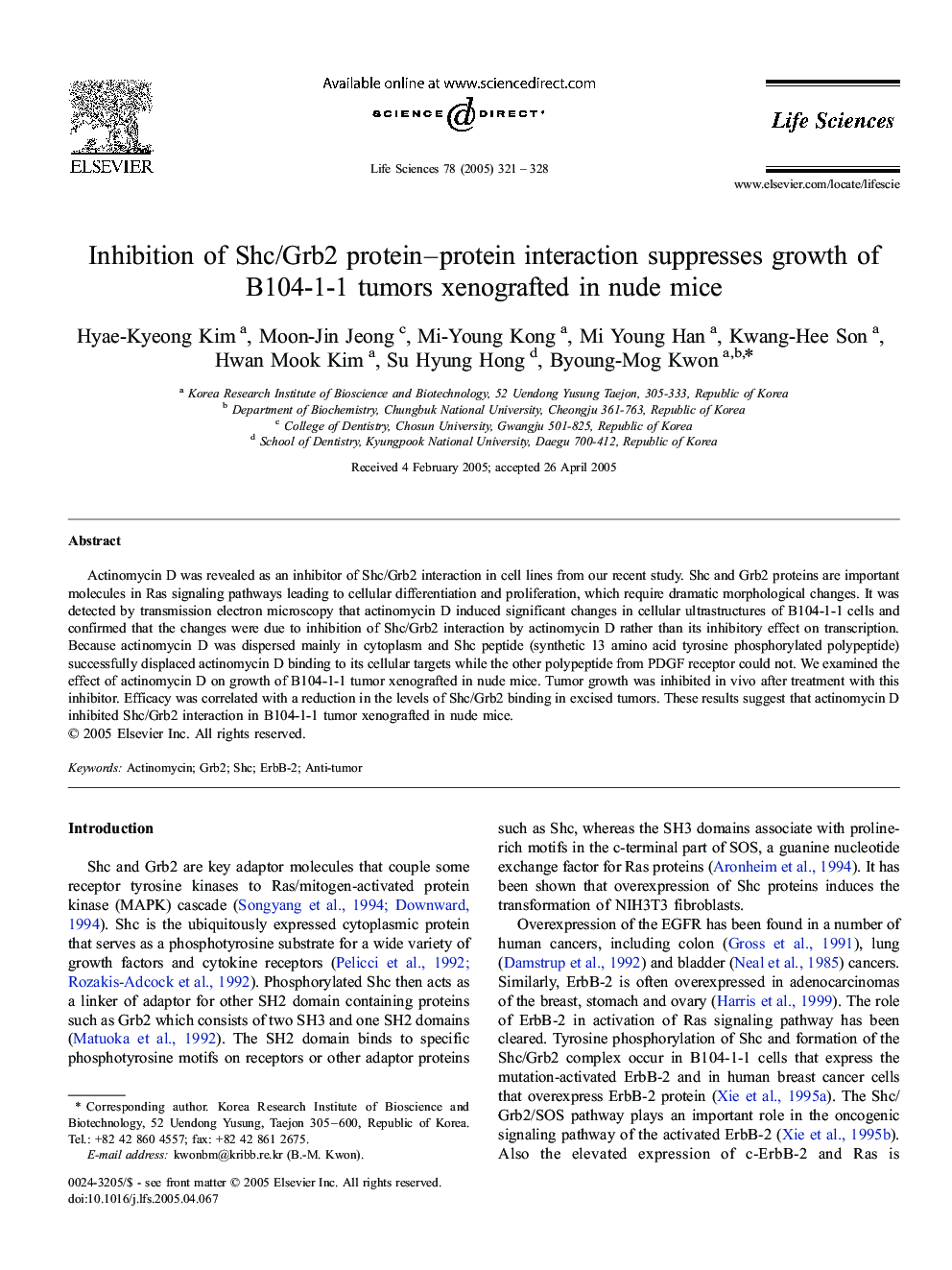| Article ID | Journal | Published Year | Pages | File Type |
|---|---|---|---|---|
| 9012620 | Life Sciences | 2005 | 8 Pages |
Abstract
Actinomycin D was revealed as an inhibitor of Shc/Grb2 interaction in cell lines from our recent study. Shc and Grb2 proteins are important molecules in Ras signaling pathways leading to cellular differentiation and proliferation, which require dramatic morphological changes. It was detected by transmission electron microscopy that actinomycin D induced significant changes in cellular ultrastructures of B104-1-1 cells and confirmed that the changes were due to inhibition of Shc/Grb2 interaction by actinomycin D rather than its inhibitory effect on transcription. Because actinomycin D was dispersed mainly in cytoplasm and Shc peptide (synthetic 13 amino acid tyrosine phosphorylated polypeptide) successfully displaced actinomycin D binding to its cellular targets while the other polypeptide from PDGF receptor could not. We examined the effect of actinomycin D on growth of B104-1-1 tumor xenografted in nude mice. Tumor growth was inhibited in vivo after treatment with this inhibitor. Efficacy was correlated with a reduction in the levels of Shc/Grb2 binding in excised tumors. These results suggest that actinomycin D inhibited Shc/Grb2 interaction in B104-1-1 tumor xenografted in nude mice.
Keywords
Related Topics
Health Sciences
Medicine and Dentistry
Cardiology and Cardiovascular Medicine
Authors
Hyae-Kyeong Kim, Moon-Jin Jeong, Mi-Young Kong, Mi Young Han, Kwang-Hee Son, Hwan Mook Kim, Su Hyung Hong, Byoung-Mog Kwon,
